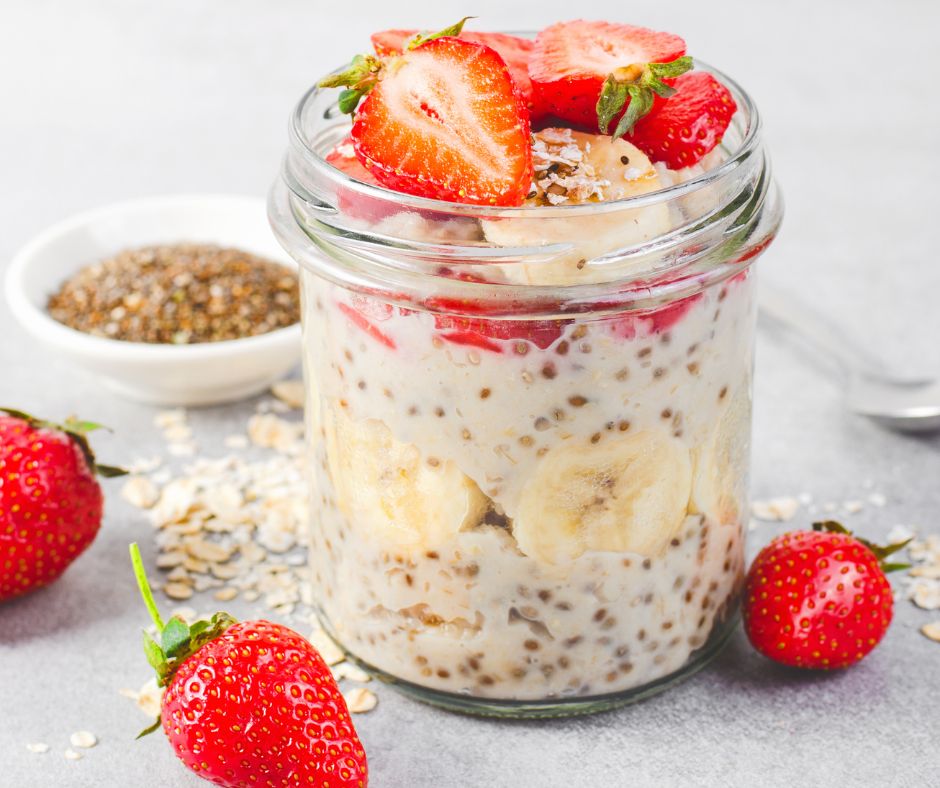5 Causes of Fatigue & Tips on How To Increase Your Energy.
Do you find yourself constantly shattered, even after a full night’s rest?
Are you grappling with afternoon energy slumps, relying on coffee to power through the day?
Are sleep troubles, like difficulty falling or staying asleep, a nightly struggle?
If you’ve nodded along to any of these questions, rest assured, you’re not alone. We all have days when we struggle through the day, but if you are constantly tired it’s time to get to the root cause and find out what you can do to regain your vitality.

While occasional sluggishness is part of life, when fatigue becomes a persistent companion, it’s crucial to delve into the root causes. Exploring whether hormonal imbalances or issues with gut health might be contributing to your fatigue is a key step in regaining sustained vitality.
Causes of Fatigue
1. Nutrient Deficiency
One often overlooked cause of fatigue is nutrient deficiency. Our bodies require a delicate balance of vitamins and minerals to function optimally. A shortfall in essential nutrients, such as iron, vitamin B12, or magnesium, can lead to fatigue.
You can find out more information on key nutrients for women here.
2. Hormones/Hormone Imbalance
Hormones can influence on our energy levels, and any imbalance in these chemical messengers can significantly impact our vitality:
- Cortisol: often called the stress hormone, plays a pivotal role in our body’s fight-or-flight response. When we experience chronic stress, cortisol levels can remain elevated, disrupting the natural rhythm of cortisol release throughout the day. This prolonged elevation can lead to fatigue, sleep disturbances, and an overall feeling of burnout.
- Thyroid Hormones (T3 and T4): Your thyroid produces hormones to help regulate your metabolism, energy levels, weight, menstrual cycles and so much more. When there’s an imbalance, such as hypothyroidism (underactive thyroid) or hyperthyroidism (overactive thyroid), energy regulation is affected. Hypothyroidism often results in lethargy and fatigue, while hyperthyroidism can lead to restlessness and difficulty sleeping, both impacting overall energy levels.
- Insulin: Insulin, crucial for managing blood sugar levels, plays a significant role in our energy supply. When there’s an imbalance, particularly with insulin resistance, blood sugar levels can fluctuate dramatically. These fluctuations may result in periods of low energy, commonly known as energy crashes, as the body struggles to maintain stable blood sugar levels.
- Oestrogen and Progesterone: For women, oestrogen and progesterone levels go through cyclic changes during the menstrual cycle and can also fluctuate during perimenopause. These hormonal shifts can impact mood and energy levels. For instance, a drop in estrogen before menstruation may contribute to fatigue and mood swings.
The intricate interplay between various hormones regulates essential bodily functions, including our sleep-wake cycle, metabolism, and stress response. When hormones fall out of balance, fatigue can become a common and persistent companion. Here’s a closer look at how specific hormones contribute to or mitigate fatigue:
3. Lifestyle
Our daily lifestyle choices play a significant role in determining our energy levels and combating fatigue. The way we eat, move, and manage stress can either invigorate us or contribute to a persistent sense of tiredness.
A balanced and nutrient-dense diet, regular physical activity, and effective stress management are pillars that can positively influence our energy levels. On the flip side, poor dietary choices, sedentary habits, and chronic stress can become major contributors to fatigue. Understanding the impact our lifestyle has on our overall well-being allows us to make intentional choices that give us sustained energy and vitality.
4. Undereating/Blood Sugar Imbalance
Undereating and blood sugar imbalances are two interconnected factors that can significantly impact our energy levels and contribute to persistent fatigue. When we consistently consume fewer calories than our body needs, it lacks the essential nutrients required for optimal function, leaving us feeling depleted and low on energy.
Moreover, irregular eating patterns and the consumption of sugary or refined foods can lead to fluctuations in blood sugar levels. The spikes and crashes in blood sugar can result in a rollercoaster of energy, causing fatigue and irritability.
5. Chronic Stress
Chronic stress takes a toll on both your mental and physical well-being. It may trigger a cascade of hormonal responses, particularly an increase in cortisol levels, which can disrupt our natural energy balance. This prolonged state of heightened alertness can lead to disrupted sleep patterns, making it challenging to have restorative rest needed to combat fatigue.
Moreover, chronic stress can lead to nutrient depletion, as our bodies may require higher levels of nutrients to cope with the heightened demands. Along with emotional eating or a reliance on stimulants like caffeine, creating a cycle that perpetuates exhaustion.
Find out more on how stress impacts your health here.
Strategies for Renewed Energy
Diet
Opt for a well-rounded, nutrient-dense diet, including a mix of complex carbohydrates, lean proteins, healthy fats, and a rainbow of fruits and vegetables. This provides a steady supply of essential nutrients to support energy production. It’s crucial to be mindful of sugar and excessive refined carbohydrates as they can lead to blood sugar fluctuations, causing energy crashes. o avoid the high and lows of fluctuating blood sugar levels that can cause your energy to crash limit the amount of sugar and refined and processed carbs you are consuming.
Opting for complex carbohydrates is a smart choice, given their slower digestion rate and holistic health benefits. Include whole grains, brown rice, leafy vegetables, and oats in your diet, as they not only provide sustained energy but also pack a nutritional punch with essential vitamins and nutrients.
Protein is essential for the body to stay healthy. Incorporate lean protein sources like fish and chicken into your meals, and consider adding legumes and nuts to ensure a well-rounded protein intake. This balanced approach to macronutrients forms a solid foundation for sustaining energy levels and promoting overall health.
Key Nutrients & Supplements for Energy
- B Vitamins: Essential for energy metabolism, B vitamins play a key role in converting food into usable energy. Whole grains, lean proteins, and leafy greens are excellent sources of B vitamins.
- Iron: Vital for transporting oxygen in the blood, and its deficiency can lead to fatigue. Incorporate iron-rich foods like lean meats, beans, lentils, and dark leafy greens into your diet to support optimal oxygen circulation and mitigate feelings of tiredness.
- Magnesium: This mineral is an essential mineral involved in hundreds of biochemical reactions in the body, including energy production at the cellular level. Nuts, seeds, whole grains, and leafy greens are rich sources of magnesium. Considering a magnesium supplement, under professional guidance, can be beneficial, especially if dietary intake is insufficient.
- Vitamin D: Often known as the sunshine vitamin, vitamin D plays a crucial role in overall health, including energy regulation. Exposure to sunlight is a natural way to boost vitamin D levels, but in cases of deficiency, supplements may be recommended to enhance energy and well-being.
If you are experiencing symptoms of fatigue addressing the root cause may help significantly improve your energy levels.
If you would like a plan to support you and your lifestyle please reach out I would love to help. Drop me an email at [email protected] or book a free call with me.
What to eat when you have no time to cook
What to Eat When You Have No Time, Energy & Motivation Feeling shattered and unmotivated? After a busy, long day you…
How to Stop Emotional Eating
How to Stop Emotional Eating: 7 Practical Tips to Break the Cycle Balancing a demanding career, managing family responsibilities, and trying…
Expert Tips for Weight Loss That Actually Work
Expert Tips for Weight Loss That Actually Work Weight loss can often feel like an uphill battle, especially with so much…
Free Balanced Plate Guide – Healthy Eating
Free Balanced Plate Guide Are you constantly juggling work, family, and trying to take care of yourself? Do you wonder how…
5 Quick and Easy Breakfast Ideas for Busy Lives
Energise Your Mornings: 5 Quick and Easy Breakfast Ideas for Busy Lives You’ve likely heard the saying that “breakfast is the…
Save Time and Eat Healthy with Simple Meal Prep
Meal Prep for the Week—A Beginner’s Guide to Quick and Healthy Eating Are you constantly juggling work, family, and personal time,…








